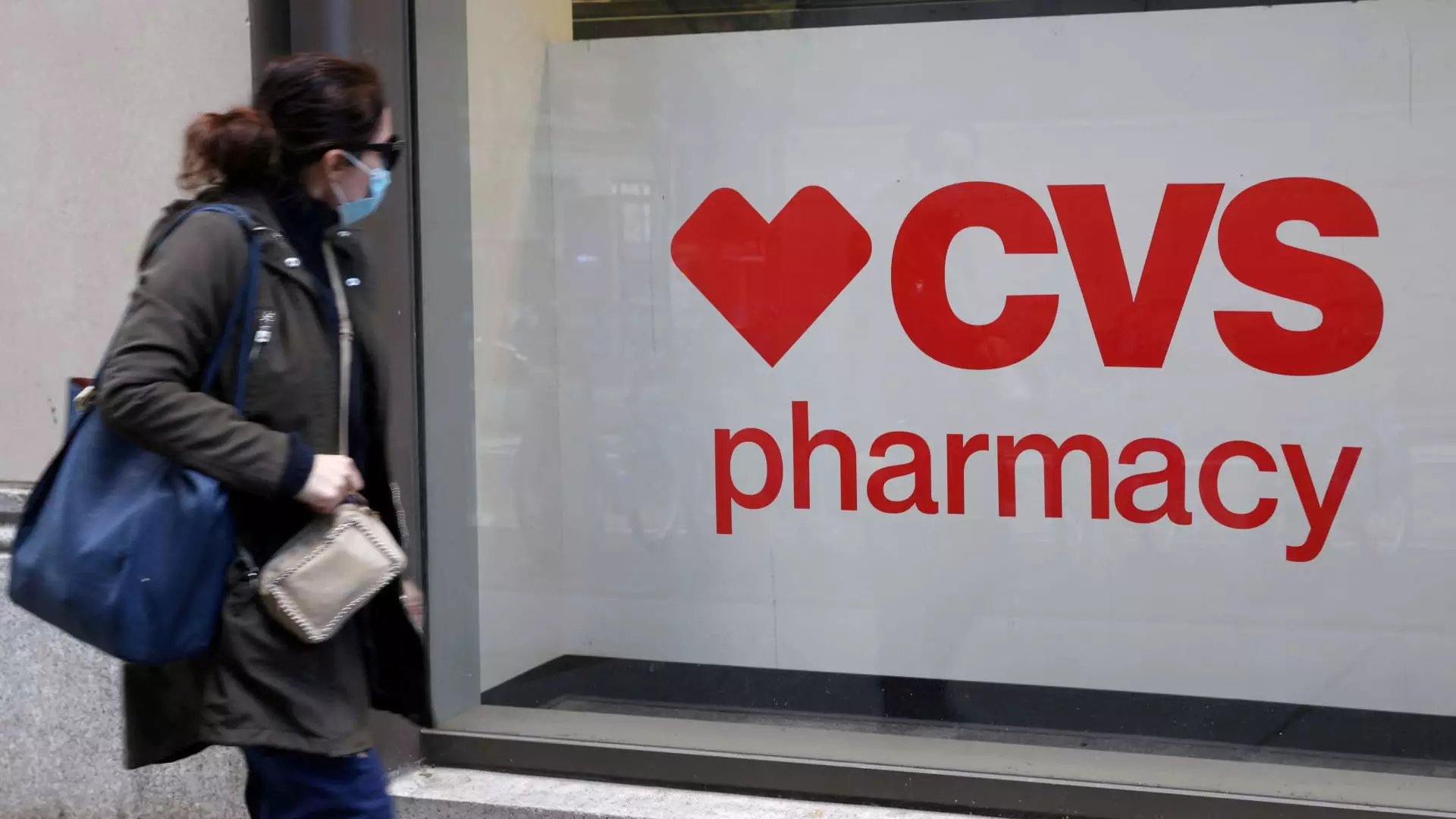CVS Health recently announced its first-quarter revenue and adjusted earnings, falling short of expectations and leading to a significant drop in share prices. The company reduced its full-year profit outlook due to higher medical costs impacting the U.S. insurance industry. These challenges caused shares to plummet by almost 18%, marking the worst day for the company since November 2009. CVS now expects adjusted earnings for 2024 to be at least $7 per share, down from the previous guidance of $8.30 per share, disappointing analysts who predicted full-year adjusted profit of $8.28 per share.
The increase in medical costs, particularly in the insurance business segment owned by CVS, has been attributed to several factors. Delays in medical procedures during the pandemic, such as joint and hip replacements, have resulted in a spike in medical costs for insurers like Humana and UnitedHealth Group. Medicare Advantage patients returning to hospitals for postponed treatments have contributed to rising costs, posing challenges for the insurance industry. Medicare Advantage, a significant revenue source, has faced mounting concerns regarding escalating expenses, covering over half of all Medicare beneficiaries.
During an earnings call, CVS CEO Karen Lynch acknowledged the broad-based utilization pressure experienced by the company’s Medicare Advantage business in various areas. Lynch highlighted that outpatient services and supplemental benefits exceeded projections in the first quarter, impacting the company’s financial performance. CVS CFO Thomas Cowhey emphasized the commitment to improving Medicare Advantage margins in the upcoming year amidst challenges posed by government reimbursement rates and regulatory provisions.
Financial Performance and Industry Disruption
In the first quarter, CVS reported lower-than-expected earnings per share of $1.31 (adjusted) compared to the anticipated $1.69, with revenue totaling $88.44 billion below the expected $89.21 billion. Net income for the quarter was $1.12 billion, significantly lower than the previous year, reflecting a decline in performance. The health services segment witnessed a drop in sales due to the loss of prominent clients like Tyson Foods and Blue Shield of California, signaling ongoing industry disruption with PBMs like CVS’ Caremark facing challenges from emerging alternatives promising lower costs and transparency.
As CVS aims to transition into a comprehensive healthcare entity, recent acquisitions of health-care providers like Signify Health and Oak Street Health underscore the company’s strategic transformation. The expansion into primary care clinics and enhanced health insurance offerings demonstrate CVS’s ambition to evolve beyond its traditional drugstore role. However, the first quarter results indicate discrepancies in financial performance with the health insurance segment observing a surge in revenue but a decline in operating income, falling short of analysts’ expectations.
The increase in the medical benefit ratio for CVS’s insurance division raises concerns about heightened expenses and operational inefficiencies affecting profitability. The disruption in revenue streams due to lost clients and changing pharmacy client preferences further complicates the financial landscape for CVS. The company’s focus on improving Medicare Advantage margins and streamlining operational processes will be crucial in navigating challenges and ensuring sustainable growth. Despite the setbacks in the first quarter, CVS’ strategic initiatives and acquisitions demonstrate a commitment to diversification and long-term success in the evolving healthcare landscape.

